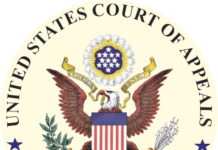Kansas would be able to pay more for private lawyers who take on defense cases for the state under legislation considered by a House Committee on Monday.
A bill backed by the Board of Indigent Defense Services would remove the cap that limits the pay to $80 an hour for assigned counsel, much lower than the going market rate for private attorneys.
The bill comes at a time when the state is grappling with an overwhelmed public defender system where lawyers are handling too many cases, earn less than prosecutors and aren’t spending a sufficient amount of time on cases.
The issues threaten the state’s ability to meet its constitutional obligation to provide an effecitive defense for Kansans charged with crimes who can’t afford a lawyer.
Raising the cap for private defense attorneys is seen as one step toward relieving the overburdened system.
The current rate of $80 an hour was set in 2006 and is now 64% less than than the market rate of $225 earned by private attorneys.
Fiscal analysts estimated that the bill would cost about $3.5 million if the salary was raised to $100 an hour.
“Low hourly rates for assigned counsel deter counsel from joining or staying on our assigned counsel panels because they are not paid sufficiently for the time they are ethically required to spend on their cases,” said Heather Cessna, executive director of the Board of Indigent Services.
“Low hourly rates also incentivize attorneys to take more cases than they should in order to
make ends meet,” Cessna said in written testimony to the House Judiciary Committee.
“Low hourly rates have also been shown to (incent) attorneys to go to trial less often
because pleas are paid better for the time spent on them than jury trials are.”
The bill does not automatically increase the amount paid to private lawyers, however.
The Boad of Indigent Defense Services would have to vote to increase the rate and
the Legislature would have to allocate the funding to support that increase.
A judge could still negotiate a lower rate for attorneys who voluntarily accept
appointments and the board still has the authority to set the rate via contract.
“Because our public defender offices have had to refuse new cases more and more often due to staffing and caseload concerns, those refused public defender cases have to go somewhere,” Cessna told lawmakers.
“They end up being distributed to our assigned counsel more and more frequently and in much larger numbers than they used to be even just five years ago.
In fiscal year 2020, the state’s public defender offices had to shut down to new cases 26 times.
On average, Kansas public defenders are each handling about 205 felony cases a year, roughly 37% more than the 150 cases recommended by national standards.
Of the 11 public defenders offices in Kansas, only three have caseloads within the 150 cases set by national standards, although some of those came in lower because cases were refused and turned over to private lawyers.
Cessna said the bill is needed so her agency has the flexibility to respond to those pressures and head off what could be a looming constitutional crisis to provide effective defense for Kansans.
















